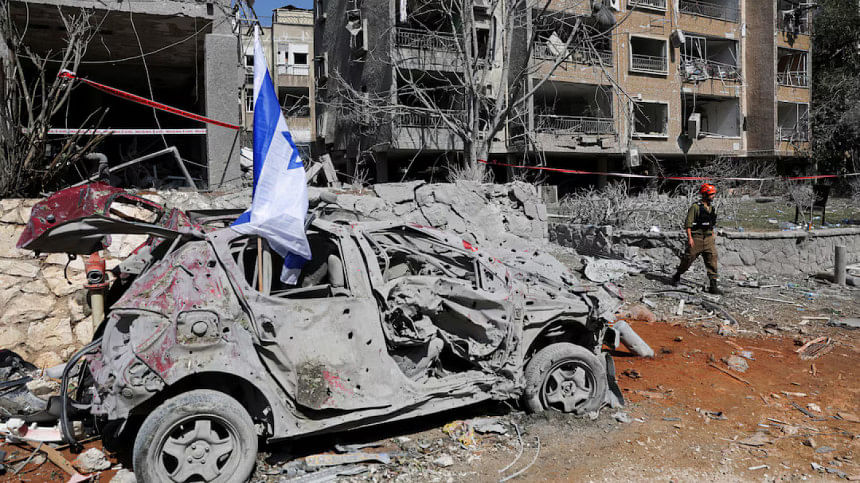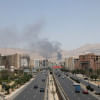Israel–Iran conflict: The West’s enduring double standards

The tensions between Israel and Iran are not merely about missiles or politics; they reflect decades of decisions made by powerful countries, particularly in the West. These decisions have not always been just, and they continue to shape how the region is perceived and treated.
To understand the current situation, it is essential to consider how Iran arrived at this point. Prior to the 1979 revolution, the country was ruled by the Shah—a monarch who maintained a pro-Western foreign policy and was strongly supported by Western powers. He granted foreign nations access to Iranian oil and allowed them a say in domestic affairs. However, this came at a cost to many Iranians, who felt marginalised. In 1953, the West supported a coup that overthrew Prime Minister Mohammad Mossadegh after he sought to nationalise the country's oil industry. That event continues to shape Iran's mistrust of Western powers.
In 1979, a series of events culminated in the overthrow of the Shah and the establishment of the Islamic Republic of Iran. Known as the 1979 revolution—or the Islamic Revolution—it was driven by mounting frustration with the Shah's rule. Economic hardship, political repression, and the perceived erosion of Iranian culture due to Western influence fuelled widespread discontent.
The revolution marked a turning point in the region's history, reshaping Iran's domestic and foreign policy for decades. At its core, it was a rejection of a system that allowed foreign influence to dictate national affairs. Since then, Iran has sought to assert its independence and align itself with groups that share its worldview—naturally placing it at odds with Western-aligned governments.
One pivotal episode that defined Iran's posture in the region was the war with Iraq from 1980 to 1988. Saddam Hussein, with encouragement and support from Western powers and some Arab states, launched an invasion of Iran just a year after the revolution. The war dragged on for eight years, claiming hundreds of thousands of lives on both sides. While publicly calling for peace, Western countries supplied arms and intelligence to Iraq, even when Saddam's regime used chemical weapons. This further deepened Iran's distrust and strengthened its determination to achieve self-reliance and deterrence. The conflict was not merely military; it had a lasting effect on Iran's perception of global power dynamics and the credibility of international norms.
Subsequent developments in the region further exposed the shortcomings of Western intervention. The 2003 invasion of Iraq by the United States—justified by unfounded claims of weapons of mass destruction—resulted in profound instability. The war led to the collapse of state institutions, the rise of violent extremist groups, and immense suffering for millions of Iraqis. Rather than promoting democracy, the invasion left behind a fragmented country still struggling to recover.
In Afghanistan, a two-decade-long military campaign ended in a chaotic withdrawal in 2021. Despite extensive investment in military training and governance, the Afghan government collapsed swiftly after foreign troops departed. The return of the Taliban raised serious doubts about the outcomes of Western intervention. For many in the region, these experiences reinforced the belief that Western promises of democracy and stability are often hollow or self-serving.
These events have shaped Iran's worldview. Iranian leaders and citizens perceive a global system where the rules are selectively applied—dependent on who wields power and who is favoured. The message they derive is clear: justice is not impartial. Some nations face severe consequences for their actions, while others are effectively exempt.
Israel, by contrast, was established after the Second World War with the backing of Western powers. Its creation, however, displaced a significant number of Palestinians—an issue that remains unresolved. Over the years, Israel has received unwavering military and financial support, particularly from the United States. Even when its actions have drawn widespread international criticism, such support has persisted.
This disparity is most evident in the nuclear arena. Israel is widely believed to possess nuclear weapons, though it has never officially acknowledged this and has not signed the Nuclear Non-Proliferation Treaty (NPT). Iran, on the other hand, did sign the NPT and has permitted inspections, yet has faced years of sanctions and threats over its nuclear activities. The implication is unmistakable: nuclear norms are enforced unevenly.
In recent decades, Iran's regional influence has grown through its support of groups aligned with its interests—groups which Israel and some Arab states perceive as threats. Meanwhile, Israel has established diplomatic relations with several Arab nations, reframing longstanding hostilities into new alliances. These moves are often hailed as steps towards peace, but they also function to isolate Iran.
When Israel conducts airstrikes in countries like Syria, Western responses are typically muted or supportive. However, when Iran or its allies retaliate, the tone shifts dramatically to condemnation and alarm. This double standard has repeated itself many times.
Such inconsistencies have tangible consequences. They erode the credibility of international institutions tasked with upholding justice and fairness, and they send a disheartening message—that justice is contingent on alliances, not actions.
There is a broader danger, too. If the current conflict escalates, it risks drawing in more nations. But even if a wider war is avoided, a fundamental problem remains: peace is unlikely when one party is consistently given the benefit of the doubt.
Ordinary people across the Middle East bear the brunt of these tensions. Whether in Gaza, Tehran, or Tel Aviv, civilians are caught between missiles and political rhetoric. Meaningful progress requires a reassessment of how the world responds to conflict—one that upholds the same standards for all countries and groups.
It is fair to critique Iran's policies, just as it is fair to scrutinise Israel's. But doing so selectively only deepens the crisis. If Western nations genuinely wish to foster peace, they must demonstrate a willingness to hold both allies and adversaries accountable.
This is a moment for introspection. For too long, global policy has been shaped by strategic alliances rather than principles of justice. This approach has bred mistrust, resentment, and instability. Changing course will not be easy—but it is essential. The future of the region depends on it.
Md. Kawsar Uddin is associate professor in Department of English and Modern Languages at the International University of Business Agriculture and Technology (IUBAT).
Views expressed in this article are the author's own.
Follow The Daily Star Opinion on Facebook for the latest opinions, commentaries and analyses by experts and professionals. To contribute your article or letter to The Daily Star Opinion, see our guidelines for submission.

 For all latest news, follow The Daily Star's Google News channel.
For all latest news, follow The Daily Star's Google News channel. 










Comments